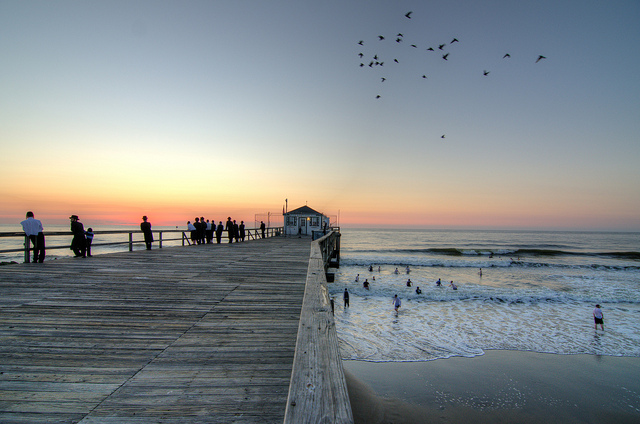At its best, “spirituality” (whatever that term actually means) is a spur to greater compassion, engagement with social justice, and trying to make the world a better place. This used to be called mysticism, which actually meant something and sought to wrestle and engage with the wider tradition in which it was situated. Many times, organised religion sought to crush the mystics, with their call to genuine compassion, and their speaking truth to power, and their direct engagement with the divine other (or others).

If you meet the Buddha on the road, kill him
Every time I have an encounter with someone who has an interest in spirituality, and also possesses power over others, I find that they want to silence my anger at injustice because it is “not spiritual” to be angry. I find myself bruised and diminished by their criticism of my way of being in the world. Any engagement with the intellectual or theological or historical context of an issue is also silenced by these people, because that is “not spiritual” either. These people are so convincing with their “peaceful” mien and unfurrowed brows, untroubled by actual social injustice or the suffering of others. These are the type of people who silence those who complain of racism, sexism, and homophobia, claiming that they are “obsessed” with race, gender, and sexuality.
Some of them do engage with the suffering of others, but in my view, they only exacerbate it by placing the blame squarely on the shoulders of the sufferer, convincing them that they must “work on themselves” and buy whatever the latest self-help book, video, course, life-coaching, etc happens to be. Some of them even say that the first step to being more spiritual or loving or whatever is to accept oneself. The natural response of many people to this is to feel guilty for not loving themselves. However, the lack of self-love and self-esteem that many people suffer from is caused by alienation from other people, from nature, and from life. It will not be solved by increased introspection, but by going out and doing what you love. If you are an introvert, that might be different from what extroverts love to do, and that is just fine. The first step to accepting yourself is to stop worrying about yourself so much.
The blame for social ills is constantly shifted from the collective to the individual in many contexts. Instead of preventing bullying in the workplace, employers hire stress and time-management consultants to ‘fix’ individuals who haven’t ‘adapted’ to the workplace. The same applies to dieting, where the fact that it is difficult to avoid eating fattening food, and difficult to get enough exercise to burn it off, is laid squarely at the door of the overweight individual, and hardly anyone bothers to look for social or societal factors that might contribute to obesity.
Whenever you see a self-help book, or a person who sets themselves up as an authority on spiritual matters, ask yourself what qualifies them to be such an authority. I am not saying their life has to be totally organised (whose life is not subject to misfortune and the vagaries of circumstance?) – but rather, how do they respond to disaster? Do they curl up in a welter of self-pity, or do they actually get out and do something, perhaps getting involved with trying to right the social injustice that caused their misfortune (if applicable)? As the wonderful saying has it, “if you meet the Buddha on the road, kill him”. Anyone claiming to be a Buddha is not a Buddha. The Tao that can be named is not the true Tao. Indeed, it was Siddhārtha Gautama, the Buddha himself, who said that if the things he said did not make sense to his hearers, they should ignore him:
“Do not believe in anything simply because you have heard it. Do not believe in anything simply because it is spoken and rumoured by many. Do not believe in anything simply because it is found written in your religious books. Do not believe in anything merely on the authority of your teachers and elders. Do not believe in traditions because they have been handed down for many generations. But after observation and analysis, when you find that anything agrees with reason and is conducive to the good and benefit of one and all, then accept it and live up to it.”
Subjecting advice to scrutiny and reflection about whether it applies to your own life is of course a principle that you should apply to anything that I write as well. Nothing is exempt from this principle. My perspective is also limited to my own experience, as is that of every other writer.
Do without doing, and everything gets done
If all the money and energy that was expended on trying to become more spiritual was expended on trying to make the world a better place for everyone, think how much better the world would be. I am not saying that people should not indulge themselves in a bit of pampering like a massage and a bath with some nice candles and a bit of tinkly music, but do it unashamedly because it makes you feel good, not because you think you ought to, or because you think it will make you a more spiritual person.
As the great Viktor Frankl once said:
“Don’t aim at success. The more you aim at it and make it a target, the more you are going to miss it. For success, like happiness, cannot be pursued; it must ensue, and it only does so as the unintended side effect of one’s personal dedication to a cause greater than oneself or as the by-product of one’s surrender to a person other than oneself. Happiness must happen, and the same holds for success: you have to let it happen by not caring about it. I want you to listen to what your conscience commands you to do and go on to carry it out to the best of your knowledge. Then you will live to see that in the long-run—in the long-run, I say!—success will follow you precisely because you had forgotten to think about it”
Personally, I derive more benefit from going for a nice walk in the woods, or going on a demonstration about a social justice issue, or having a nice evening with friends, than I ever have from any attempt to “be more spiritual”. I am not a naturally introspective person in any case. You can derive a great amount of self-worth and connecting with others by going to take part in conservation work, or feeding the homeless, or helping animals, or doing something creative – you don’t need to sit about worrying about whether you are spiritual enough. I also derived a great deal of benefit from being a trades union caseworker, because I learnt to speak truth to power, but I became a caseworker because it was the thing in front of me that needed doing, and I knew it was the right thing to do, not because I particularly hoped to gain anything from it.
The other day, I saw a brilliant and hilarious video by J P Sears, How to be ultra-spiritual, which sends up the “spiritualler-than-thou” types (as I call them): the people who speak ultra-softly and go about dispensing unsolicited “wisdom”. It is a merciless send-up of the “ultra-spiritual”, and a critique that needed to be out there.
And then I saw a post by a “life-coach” giving women contradictory advice about how to be irresistible to men, where one of the pieces of advice was a blatant piece of slut-shaming. Fortunately, a bunch of people had posted hilarious comments on the piece, sending it up mercilessly.
I vividly remember my first encounter with a “life-coach” and I remember thinking it was a load of pretentious tosh and quite possibly a sugar-coated version of “how to be a capitalist bastard and succeed in the rat-race”.
I feel much the same about most so-called “self-help” books, which again locate the source of suffering in the individual, and fail to offer any remedy that we might all undertake as a society. There are a few excellent exceptions, such as Families and how to survive them by Robin Skinner and John Cleese, Taking care by David Smail, and Women who run with the Wolves by Clarissa Pinkola Estes (brilliantly satirised by Women who run with the Poodles, however).
This is why I have been trying to eliminate any talk of “spirituality” from my speech and writing, and instead talk about embodiment, and connecting with the body. This too might become problematic if we assume that there is only one right way to be embodied, but at least it is more earthy, and takes actual physical and emotional needs into account and makes a connection between them. Writers on embodiment that I have seen do actually seem to engage with the world around them.
Spirituality as a commodity
Nevertheless, it strikes me that the elephant in the room, and what really ails us, is the commodification and marketisation of everything – also known as capitalism. Value is no longer seen as intrinsic to an experience or a thing, but only as a marketable commodity. “Spirituality” has become yet another marketable commodity – a thing that should be our birth-right, that should be as natural as breathing, has been packaged and marketed back to us as something that can only be mediated by experts.
They say “the best things in life are free” and actually, it’s true. Having a consensual hug or a massage with someone you love, or a stimulating conversation with a friend, or a lovely walk in the woods, or some other experience of shared beauty, is much more effective than hours of “spirituality”-related activities.
One of the things that has made me a more empathetic person, and possibly a nicer person to be around, is reading novels, because novels teach you about the nuances of feeling and allow you to empathise with someone else’s pain in a safe space (the privacy of your own mind) before going out and practising compassion in the real world. The trick is to make the connection between the character in the novel and real people, of course.
Look outwards, not inwards
Many people have emphasised the idea that you need to love something greater than yourself, and/or other than yourself, in order to find happiness. Of course, many people who aspire to be spiritual do love God, or Nature, or something beyond themselves; but then they spend a lot of time worrying about how to be more spiritual, and fall back into introspection and self-doubt.
Viktor Frankl explains that the only way to find meaning and peace is to look beyond the self:
“By declaring that man is responsible and must actualize the potential meaning of his life, I wish to stress that the true meaning of life is to be discovered in the world rather than within man or his own psyche, as though it were a closed system. I have termed this constitutive characteristic “the self-transcendence of human existence.” It denotes the fact that being human always points, and is directed, to something or someone, other than oneself–be it a meaning to fulfill or another human being to encounter. The more one forgets himself–by giving himself to a cause to serve or another person to love–the more human he is and the more he actualizes himself. What is called self-actualization is not an attainable aim at all, for the simple reason that the more one would strive for it, the more he would miss it. In other words, self-actualization is possible only as a side-effect of self-transcendence.”
― Viktor E. Frankl, Man’s Search for Meaning
So, all this relentless self-examination is actually counter-productive. The Muslims say that “Allah is closer to me than my jugular vein”; Buddhists say that enlightenment is only a heartbeat away. The great mystery of life is always available, always present, always pouring itself into reality at every moment, waiting to be experienced and enjoyed.
For me, the central mystery of my religion is love. The word religion comes from the Latin word, religio, to reconnect. Love is about connection, connecting fully and deeply with another human being. There are many types of love involving different types and depths of connection (eros, filia, storge, and agape are some that have been named).
“For the first time in my life I saw the truth as it is set into song by so many poets, proclaimed as the final wisdom by so many thinkers. The truth – that Love is the ultimate and highest goal to which man can aspire. Then I grasped the meaning of the greatest secret that human poetry and human thought and belief have to impart: The salvation of man is through love and in love.”
― Viktor E. Frankl, Man’s Search for Meaning
Our culture has also sought to commodify love, and reduce it only to romantic love, but it is much broader and deeper than that. In Hebrew, one of the words for love is Ahava, meaning ‘I will give’. The Tanakh (Jewish Bible) contains an extended meditation on the meaning of Ahava in the story told in the Book of Ruth. Another is Chesed, meaning steadfast love, loving-kindness. This term is often translated into Greek as eleos. Eleos is the personification of compassion in Greek mythology. Her Roman counterpart was Clementia. Ancient paganism had thought about love, compassion, and forgiveness, and these were among the virtues they cultivated.

All the best writing seeks to broaden our humanity by encouraging us to connect, to have compassion, to love (both ourselves and others). If we cannot be compassionate to ourselves, how can we have compassion for others?
Love is a fierce and joyful thing
Love does not mean complete negation of the self. I am a human being with needs and desires, and I deserve love and compassion as much as the next person. Transcending the ego is not the same thing as erasing or negating the ego. All that happens is that one becomes aware of a reality beyond the ego, and seeks to connect with that greater reality.
Love is not a mealy-mouthed, weak thing that allows others to walk all over one. Love is a fierce and joyful thing that seeks the greatest well-being for all – bearing in mind that another person’s well-being may look quite different from yours. As many sages have said, “love thy neighbour as thyself” – in other words, love your neighbour as much as you love yourself.
Buddhism talks about ‘foolish compassion’ – the type of compassion that fails to involve the mind as well as the heart, to try and assess what would really help the suffering other. Love is not afraid to speak truth to power, or to tell the schlemiel that he is a fool.
Love is out on the front line telling the world that Black lives matter, standing up for the rights of LGBT people, indigenous peoples, immigrants, asylum seekers, and the marginalised. Love may be gentle and kind, but it is also fierce and joyous, and angry and sad, and embracing diversity.
















